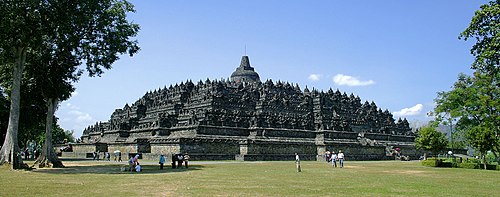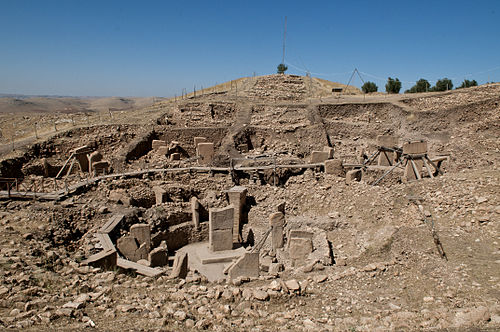Temporaladjective
Of or relating to time.
Temporaladjective
Of limited time; transient; passing; not perpetual.
Temporaladjective
Of or relating to the material world, as opposed to spiritual.
Temporaladjective
Lasting a short time only.
Temporaladjective
Civil or political, as distinguished from ecclesiastical.
Temporaladjective
of the temples of the head
Temporalnoun
Anything temporal or secular; a temporality.
Temporalnoun
(skeleton) Either of the bones on the side of the skull, near the ears.
Temporalnoun
Any of a reptile's scales on the side of the head between the parietal and supralabial scales, and behind the postocular scales.
Temporaladjective
Of or pertaining to the temple or temples; as, the temporal bone; a temporal artery.
Temporaladjective
Of or pertaining to time, that is, to the present life, or this world; secular, as distinguished from sacred or eternal.
Temporaladjective
Civil or political, as distinguished from ecclesiastical; as, temporal power; temporal courts.
Temporalnoun
Anything temporal or secular; a temporality; - used chiefly in the plural.
Temporalnoun
the semantic role of the noun phrase that designating the time of the state or action denoted by the verb
Temporaladjective
not eternal;
Temporaladjective
of or relating to or limited by time;
Temporaladjective
of or relating to the temples (the sides of the skull behind the orbit);
Temporaladjective
of the material world;
Temporaladjective
concerned with secular rather than sacred matters;
Temporaladjective
of this earth or world;
Temporaladjective
relating to worldly as opposed to spiritual affairs; secular
Temporaladjective
relating to time
Temporaladjective
relating to or denoting time or tense.
Temporaladjective
of or situated in the temples of the head
Templenoun
A house of worship, especially
Templenoun
A house of worship dedicated to a polytheistic faith.
Templenoun
(Judaism) A synagogue, especially a non-Orthodox synagogue.
Templenoun
(Mormonism) A church closed to non-Mormons and necessary for particular rituals.
Templenoun
A meeting house of the Oddfellows fraternity; its members.
Templenoun
(figurative) Any place regarded as holding a religious presence.
Templenoun
(figurative) Anything regarded as important or minutely cared for.
Templenoun
(figurative) A gesture wherein the forefingers are outstretched and touch pad to pad while the other fingers are clasped together.
Templenoun
(anatomy) The slightly flatter region, on either side of the head, back of the eye and forehead, above the zygomatic arch and in front of the ear.
Templenoun
(ophthalmology) Either of the sidepieces on a set of spectacles, extending backwards from the hinge toward the ears and, usually, turning down around them.
Templenoun
(weaving) A contrivance used in a loom for keeping the web stretched transversely.
Templeverb
(transitive) To build a temple for; to appropriate a temple to; to temple a god
Templenoun
A contrivence used in a loom for keeping the web stretched transversely.
Templenoun
The space, on either side of the head, back of the eye and forehead, above the zygomatic arch and in front of the ear.
Templenoun
One of the side bars of a pair of spectacles, jointed to the bows, and passing one on either side of the head to hold the spectacles in place.
Templenoun
A place or edifice dedicated to the worship of some deity; as, the temple of Jupiter at Athens, or of Juggernaut in India.
Templenoun
The edifice erected at Jerusalem for the worship of Jehovah.
Templenoun
Hence, among Christians, an edifice erected as a place of public worship; a church.
Templenoun
Fig.: Any place in which the divine presence specially resides.
Templenoun
A building dedicated to the administration of ordinances.
Templenoun
A local organization of Odd Fellows.
Templeverb
To build a temple for; to appropriate a temple to; as, to temple a god.
Templenoun
place of worship consisting of an edifice for the worship of a deity
Templenoun
the flat area on either side of the forehead;
Templenoun
an edifice devoted to special or exalted purposes
Templenoun
(Judaism) the place of worship for a Jewish congregation
Templenoun
a building devoted to the worship of a god or gods.
Templenoun
either of two successive religious buildings of the Jews in Jerusalem. The first (957–586 BC) was built by Solomon and destroyed by Nebuchadnezzar; it contained the Ark of the Covenant. The second (515 BC–AD 70) was enlarged by Herod the Great from 20 BC and destroyed by the Romans during a Jewish revolt; all that remains is the Wailing Wall.
Templenoun
a synagogue.
Templenoun
a place of Christian public worship, especially a Protestant church in France.
Templenoun
a thing regarded as holy or likened to a temple, especially a person's body
Templenoun
a place devoted to or seen as the centre of a particular activity or interest
Templenoun
a group of buildings in Fleet Street, London, which stand on land formerly occupied by the headquarters of the Knights Templar. Located there are the Inner and Outer Temple, two of the Inns of Court.
Templenoun
the flat part of either side of the head between the forehead and the ear
Templenoun
a device in a loom for keeping the cloth stretched.
Temple
A temple (from the Latin templum) is a building reserved for spiritual rituals and activities such as prayer and sacrifice. Religions which erect temples include Hinduism, Buddhism, Sikhism, Jainism, Christianity (whose temples are typically called churches), Islam (whose temples are called mosques), Judaism (whose temples are called synagogues), and ancient religions such as the Ancient Egyptian religion.


























